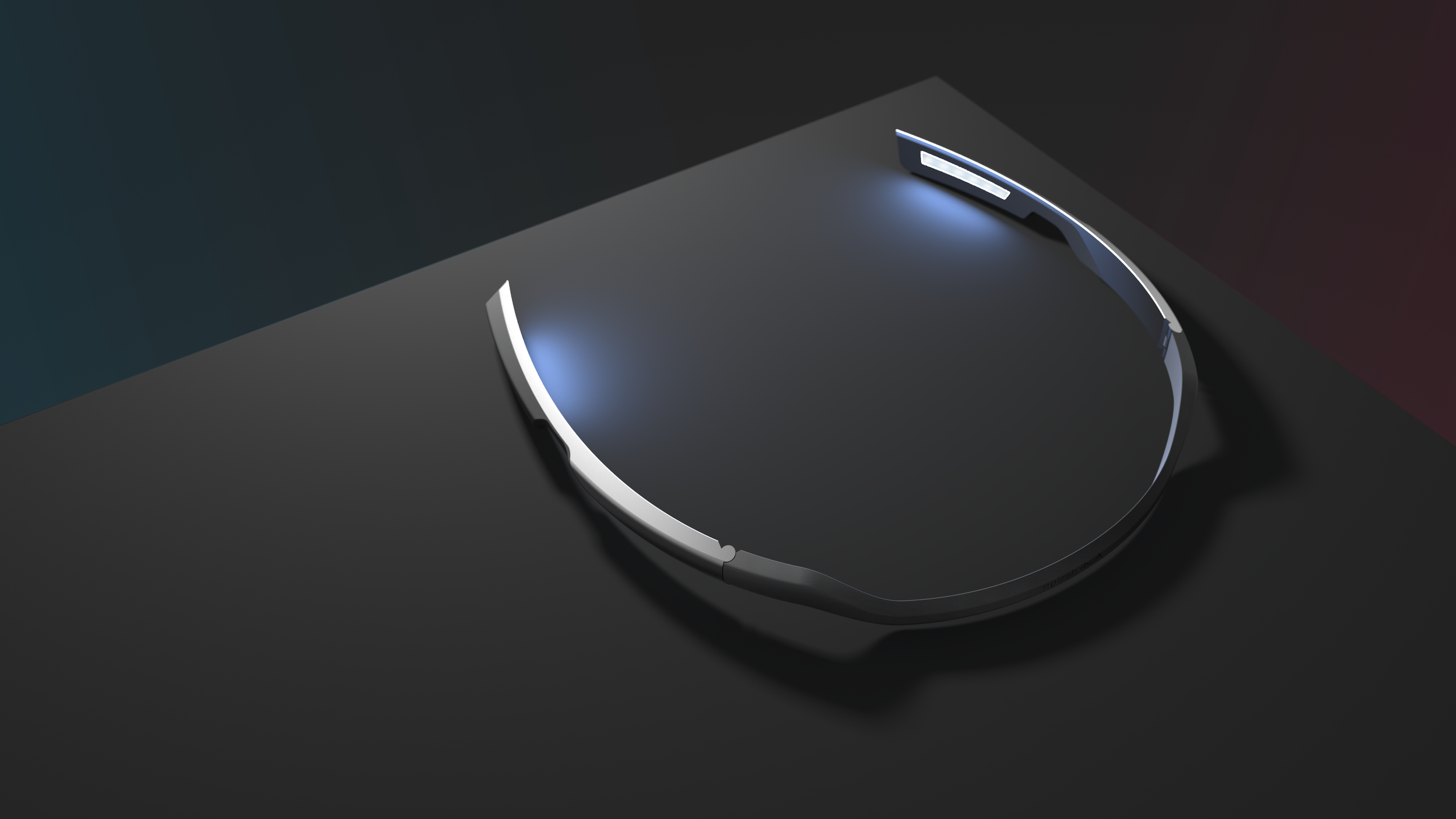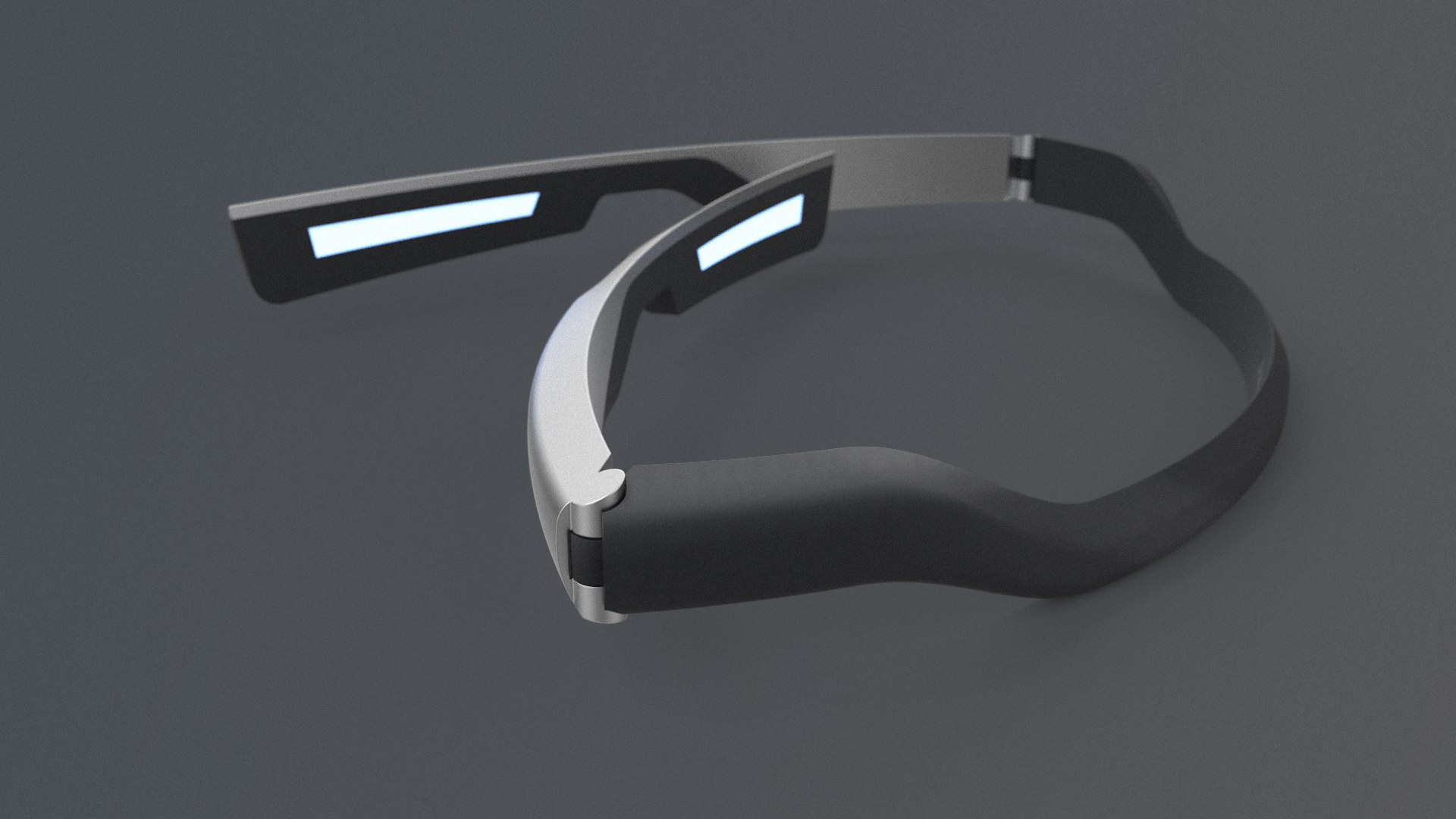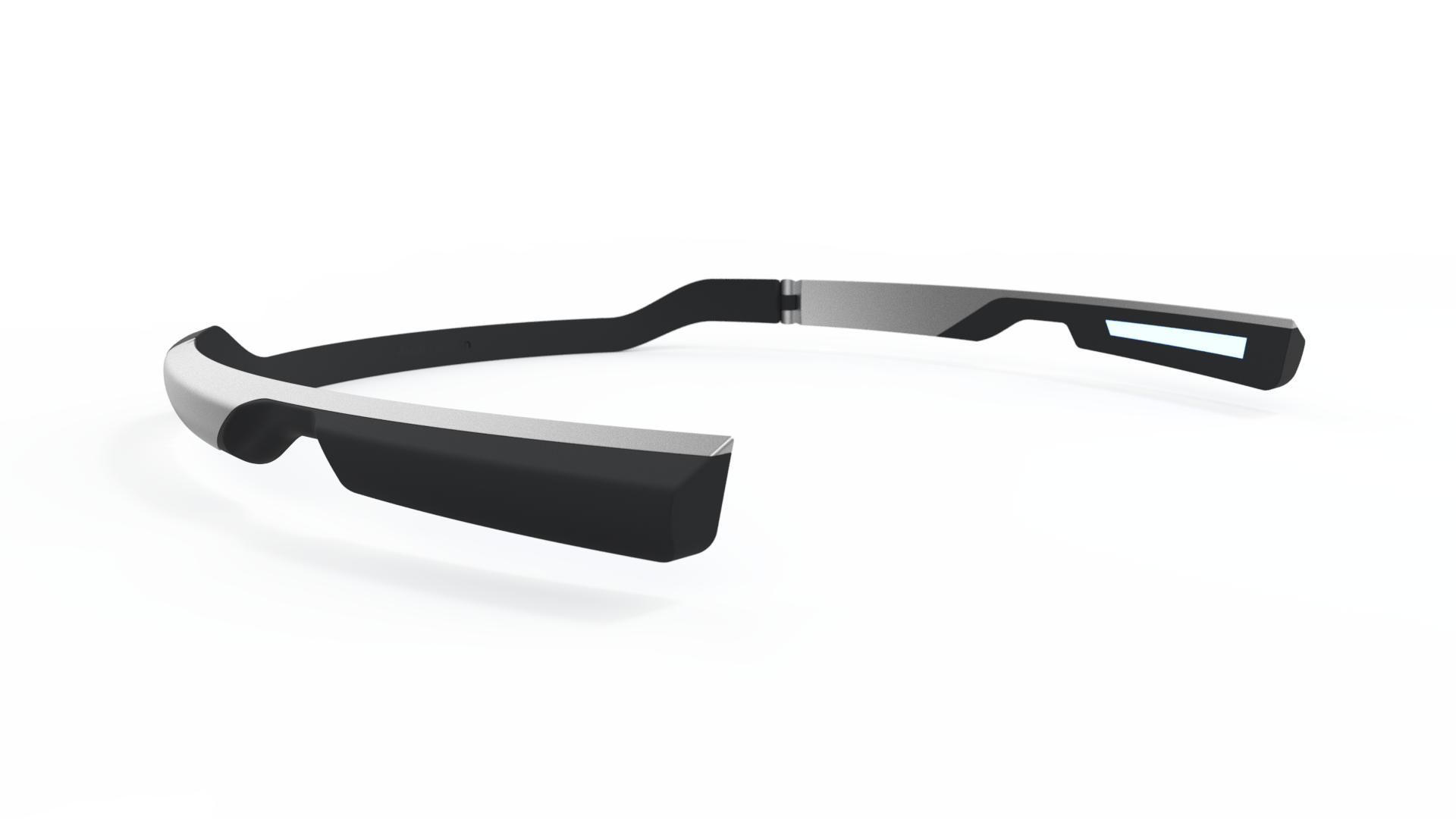
Industrial Design.
Audi LUX.
A headset for transcranial light therapy.
Date: 2016
Client: Audi Industrial Design & FH Joanneum
Awards: James Dyson Award (National Runner Up for Austria)
Did you know?
Certain parts of the human brain have photoreceptors (similar to the those in the human eye), that can react to both natural and artificial light to trigger the release of hormones that control our mood.
This statement is based on the dissertation by Heidi Jurvelin from the University of Oulu, in 2018. The diagram below shows the two areas of the human brain most responsive to light source.
Consult an expert.
To validate my research, I met with Dr. Elisabeth Locker, a neurologist at the Hietzing Hospital in Vienna, Austria.
She informed me about how it could be possible the illuminate the brain. She also provided me with a human skull, which I inspected to test at which parts of the skull how much light would enter, and concluded that the temples provide the optimal location for transcranial light therapy.




Core Idea.
Audi LUX is a headset that illuminates the user‘s brain to release stimulating hormones that treat the symptoms of depressions and insomnia.
This process is also considered transcranial light therapy.


Audi LUX.
The design has a high-quality appearance with aluminium pieces and a dynamically shaped headrest.
This closely mirrors the design language of the Audi Industrial Design Brand.
Ergonomics.
The headset comes in three sizes to match the dimensions of user‘s within the 5% and 95% margine.
This means the size varies between 12-20cm and 10-17cm in length and width, respectively.
Charging Case.
The headset can be folded together to reach a more compact form factor.
This can then be stored in the portable case, that simultaneously charges the device with wireless technology.






